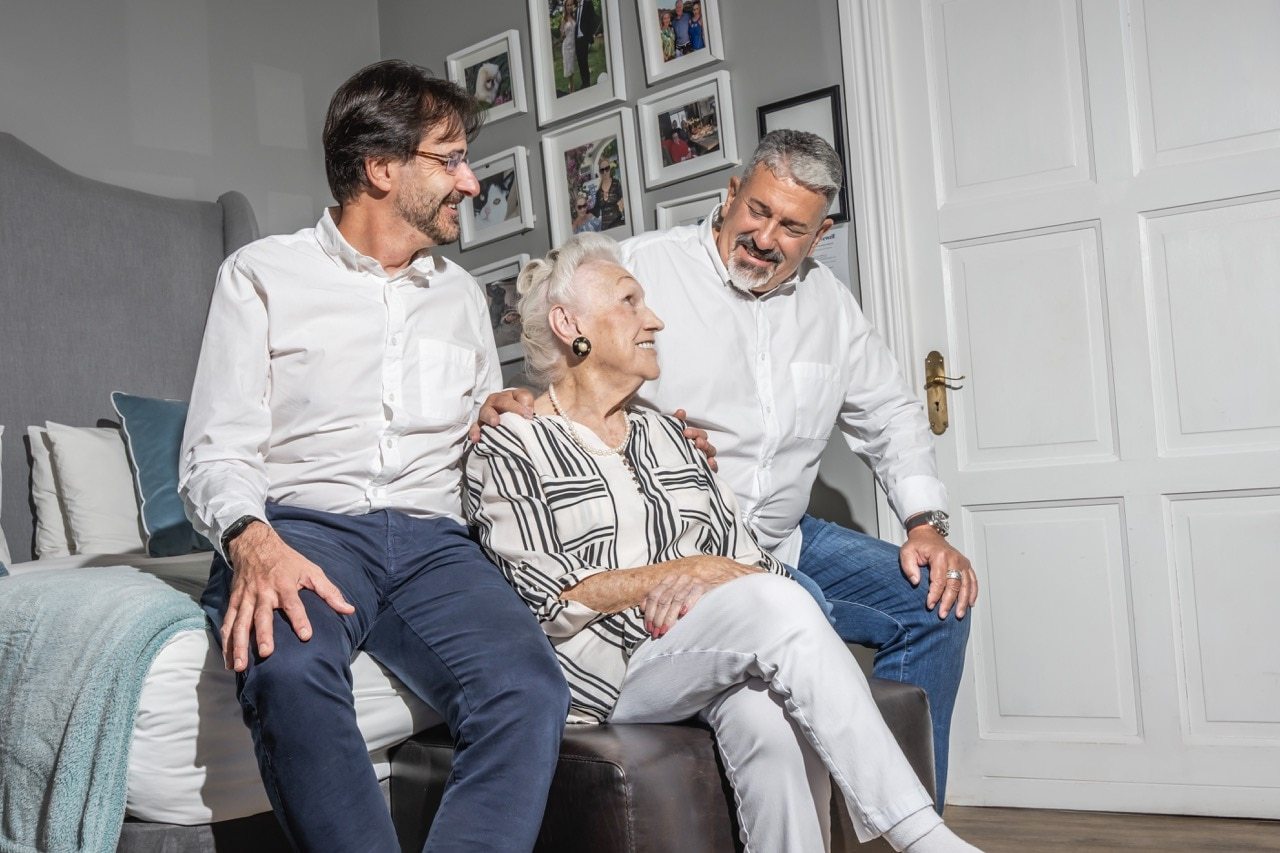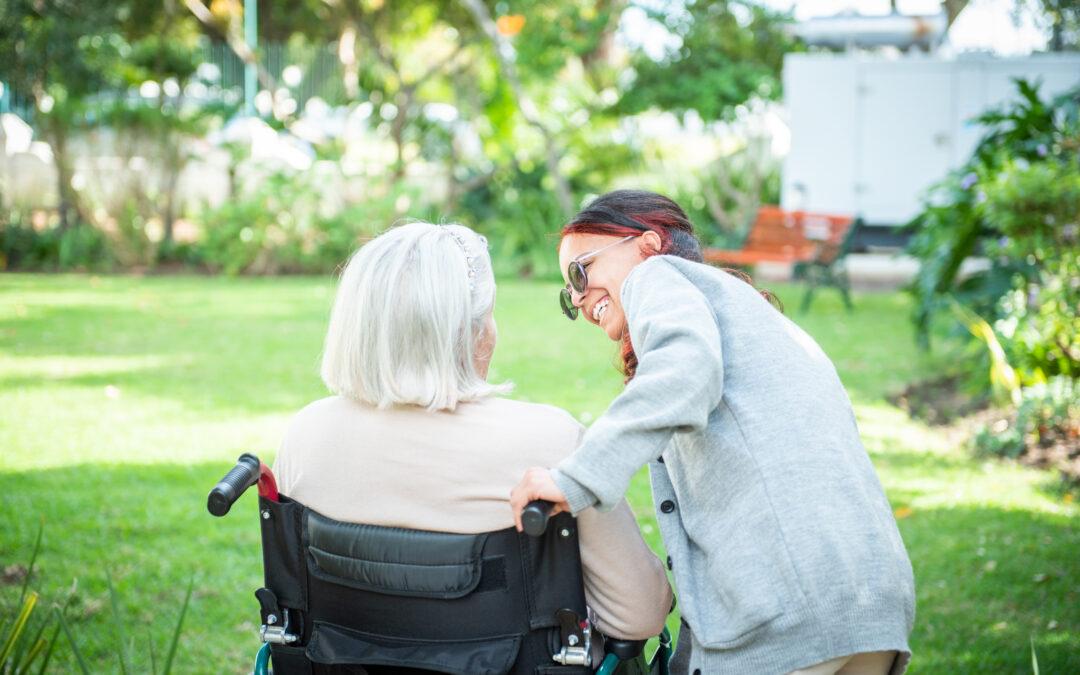Every person living with dementia has a story shaped by family, culture, work, routines, relationships, and memories that continue to define who they are, even as the condition changes the way they communicate or respond to the world. At Livewell Estates, these stories are not simply collected during admission; they form the heart of personalised dementia care. Understanding a resident’s past allows caregivers to see beyond the symptoms and connect meaningfully with the person who still exists beneath them.
Dementia affects memory, behaviour, perception, and emotional regulation, yet it never erases identity. When caregivers understand a resident’s personal narrative, their history, habits, comforts, fears, and preferences, care becomes rooted in familiarity rather than routine, and dignity becomes central to every interaction. Many residents who can no longer express their needs verbally rely on the people around them to understand their story so that care can be delivered in a way that feels safe and deeply respectful.
How life stories strengthen connection, comfort, and emotional safety

This approach becomes especially powerful during moments of confusion or emotional distress. One resident, struggling to adjust to her new environment, spent many days feeling lost and withdrawn. Our dementia care staff noticed she often held a photo album but rarely spoke. Sitting beside her, gently paging through the photos together and prompting memories, became a turning point in her sense of belonging. As she reminisced about her family and past experiences, her face softened, her mood lifted, and over time her anxious behaviour eased. The connection was not created through a care task but through the simple act of listening – an act that reminded her that she was seen and understood.
Knowing a resident’s personal history also helps caregivers navigate moments that might otherwise seem unpredictable. Another resident once expressed sudden frustration toward someone who shared a familiar-sounding surname. Learning his personal story revealed that the name reminded him of a difficult business relationship from years before. With this insight, caregivers were able to reassure him rather than challenge him, gently validating his feelings and helping him regain a sense of calm. His behaviour was not aggression; it was an unspoken memory resurfacing, and knowing his story allowed staff to respond with empathy rather than confusion.
Personal narratives also guide everyday choices that bring comfort and stability to residents. One individual who preferred wearing the same colour each day found reassurance in consistency. Instead of challenging the behaviour, Livewell’s occupational therapists honoured it. They incorporated the preferred colour into daily clothing options and slowly introduced similar hues, offering gentle encouragement while supporting autonomy. This respectful approach allowed the resident to feel understood rather than controlled, and over time, her anxiety around clothing diminished as her sense of agency grew.
The power of life stories can also restore dignity in ways that are profoundly moving. One resident, who had not left her bed in years at her previous care home, began to thrive after joining Livewell. Through encouragement, patience, and a keen understanding of her past routines and preferences, caregivers gradually built her confidence. One morning, she got out of bed, completed her hygiene routine, dressed beautifully, and joined others for breakfast. A photograph of this moment moved her daughter to tears – a single image capturing seven years of lost dignity reclaimed through personalised, compassionate care.
Why personal narratives guide every aspect of personalised dementia care
These stories illustrate how deeply personal narratives shape everyday care. They influence how staff communicate, how they approach behavioural changes, how they design activities, and how they interpret a resident’s emotional cues. Daily routines are structured around familiar patterns that reduce anxiety. Activities are chosen not simply for stimulation but because they align with the resident’s past roles and interests. Even moments of frustration or confusion are approached through the lens of personal history, with caregivers responding to the person rather than the symptom.
Families play a vital role in helping Livewell caregivers understand these stories. Their insights, from favourite songs and old recipes to lifelong morning habits or professional backgrounds, create a rich picture of who the resident truly is. This allows staff to support them with sensitivity, cultural awareness, emotional insight, and respect for the traditions that shaped their identity. For families, knowing that their loved one’s history is valued brings immense relief, reassurance, and connection, especially as dementia progresses.
Personalised dementia care is not simply a clinical approach; it is a philosophy of dignity. It acknowledges the whole person, honouring their past while supporting their present. It recognises that even when memories fade, emotional truths remain. At Livewell Estates, each resident’s life story becomes the compass guiding how caregivers speak, listen, respond, and support. It turns care into connection, routine into relationship, and daily interactions into moments of genuine humanity.
By centering care around personal narratives, Livewell ensures that residents are not defined by dementia but supported as individuals with identities, histories, and meaning. This is the essence of personalised dementia care: understanding the person deeply so that care can be delivered gently, respectfully, and with unwavering compassion in every moment.
FAQ’s about personalised dementia care
1. What is personalised dementia care?
Personalised dementia care is an approach that tailors support to the individual rather than the diagnosis. It considers the person’s life story, emotional needs, cultural background, daily routines, preferences, personality, abilities, and medical requirements. Instead of offering one standardised care plan, personalised dementia care adapts as the condition progresses, ensuring that each resident receives compassionate, meaningful, and relevant support every day. At Livewell Estates, this approach forms the foundation of all care, allowing residents to feel seen, valued, and understood.
2. How does personalised dementia care differ from a nursing home?
Traditional nursing homes primarily focus on general elderly care, often centering on physical support, clinical needs, and routine-based assistance. Personalised dementia care, however, is designed specifically for individuals living with dementia. It incorporates specialised dementia training, secure environments tailored to reduce confusion and wandering, therapeutic engagement, and emotional connection rooted in the resident’s personal history. Facilities like Livewell offer dementia-specific environments, higher carer-to-resident ratios, cognitive activities, and behaviour-sensitive support that traditional nursing homes are not always equipped to provide.
3. What dementia care options are available in Cape Town?
In Cape Town, specialised dementia care is available at Livewell Somerset West. This estate offers personalised dementia care in a secure, homely environment designed around the needs of individuals living with Alzheimer’s and other forms of dementia. Families have access to full-time residential care, short-term respite care, personalised care planning, therapeutic activities, memory-enhancing engagement, and 24/7 support from trained dementia carers and nurses.
4. What dementia care options are available in Johannesburg?
Johannesburg families can access specialised dementia support at Livewell Bryanston. This estate offers dedicated dementia care in a secure, beautiful residential setting with personalised care plans, therapeutic programmes, high carer-to-resident ratios, and round-the-clock support. Livewell Bryanston focuses on emotional wellbeing, safety, meaningful activities, and connection – all fundamental to high-quality dementia care.
5. Why is a high carer-to-resident ratio important in personalised dementia care?
A high carer-to-resident ratio ensures that each individual receives attentive, unhurried, and relationship-based support. People living with dementia often require frequent reassurance, assistance with daily activities, and emotional connection throughout the day. A higher ratio allows carers to spend more one-on-one time learning personal histories, identifying triggers, responding gently to behaviour changes, and supporting residents in a dignified, compassionate manner. This level of presence is essential for true personalised dementia care.
6. Can personalised dementia care improve a resident’s quality of life?
Yes. Although dementia is a progressive condition, personalised dementia care can significantly enhance a person’s daily experience. When care aligns with familiar routines, preferred activities, comforting memories, and emotional needs, residents feel safer, calmer, and more engaged. This approach often reduces anxiety, lowers behavioural distress, supports cognitive stimulation, and helps residents maintain a sense of identity and purpose. Families also benefit from knowing their loved one is understood as a whole person, not defined by their diagnosis.
If you are considering specialised dementia care for your love one, get in touch with Livewell to discuss their personalised dementia care needs.
